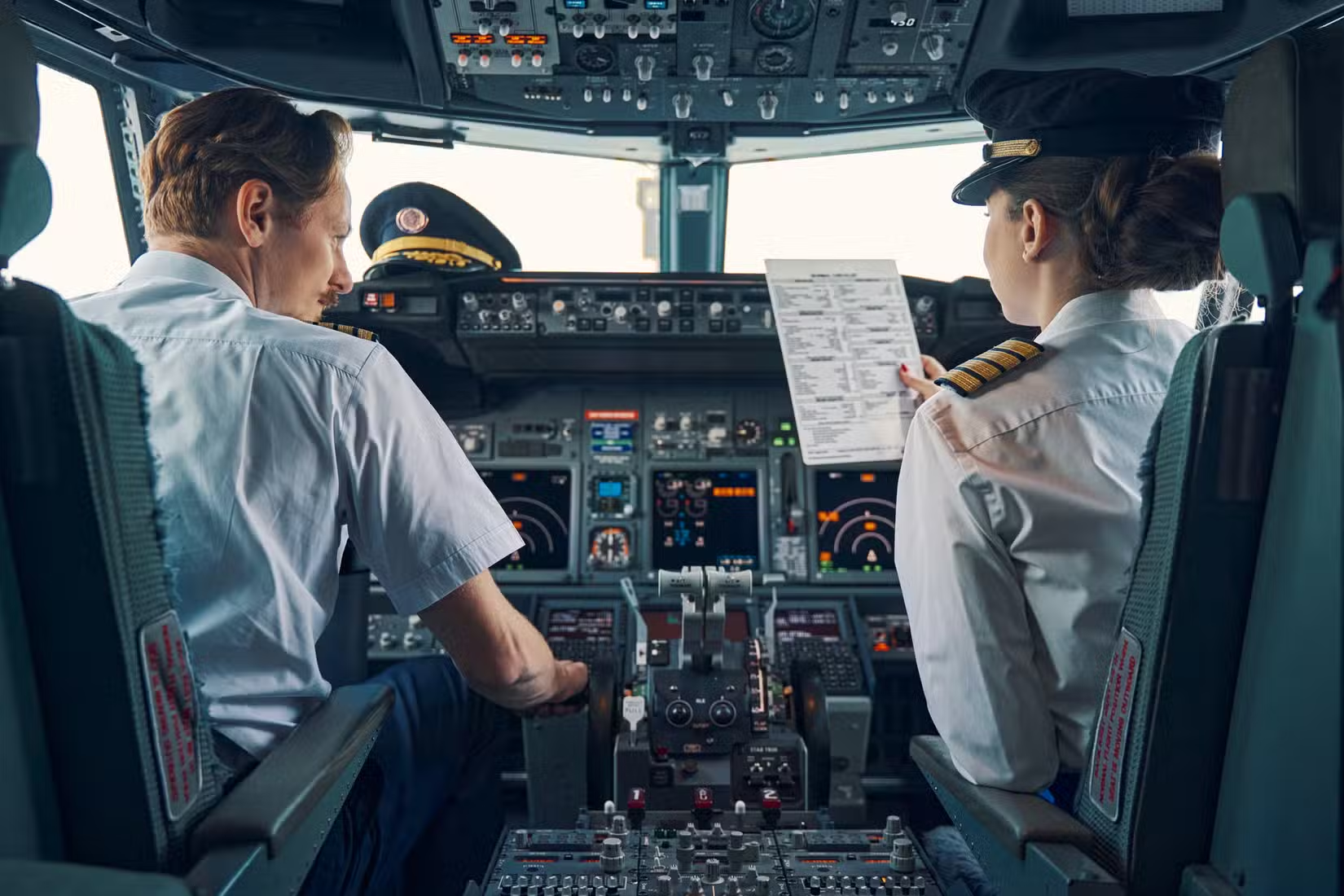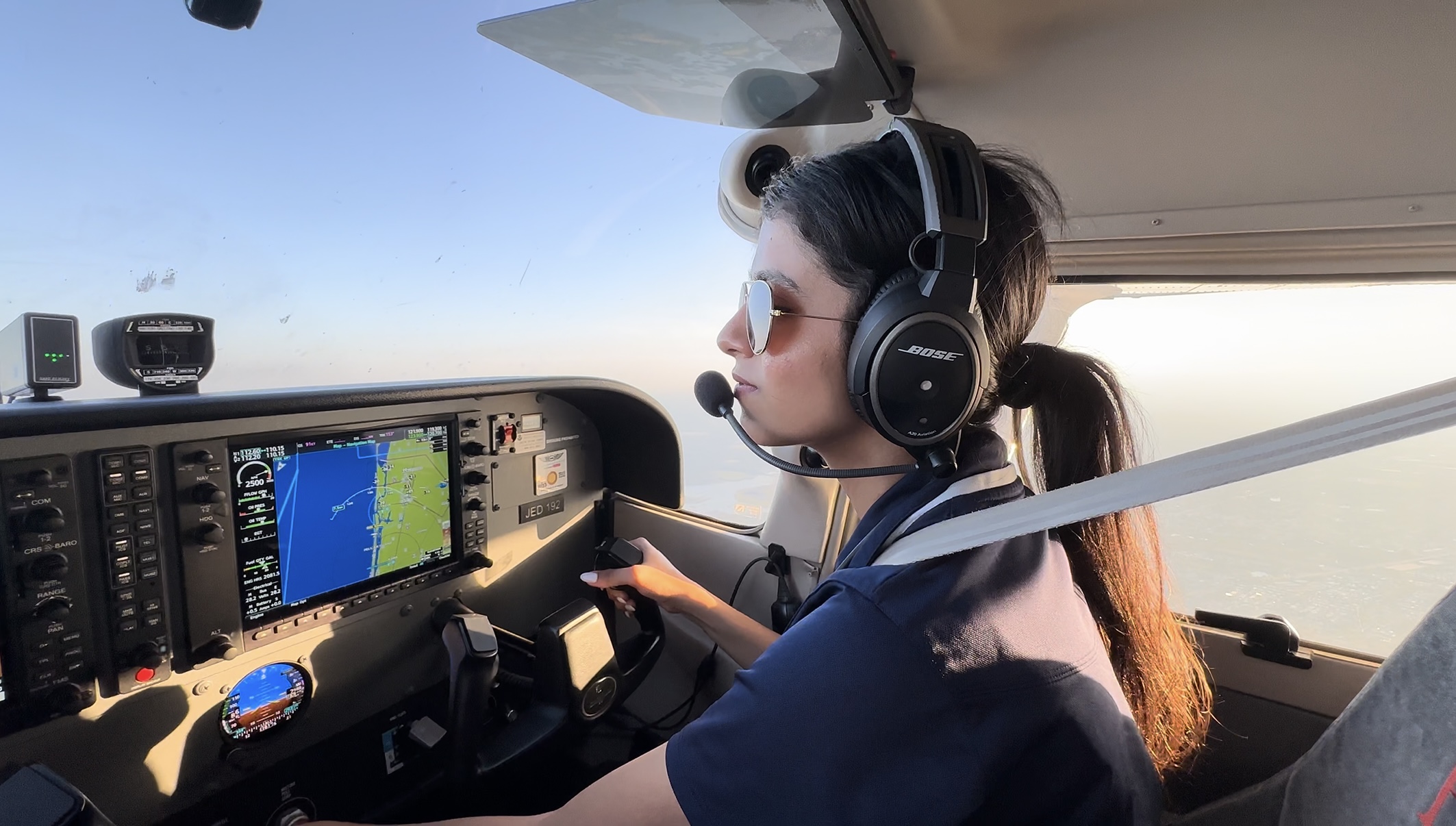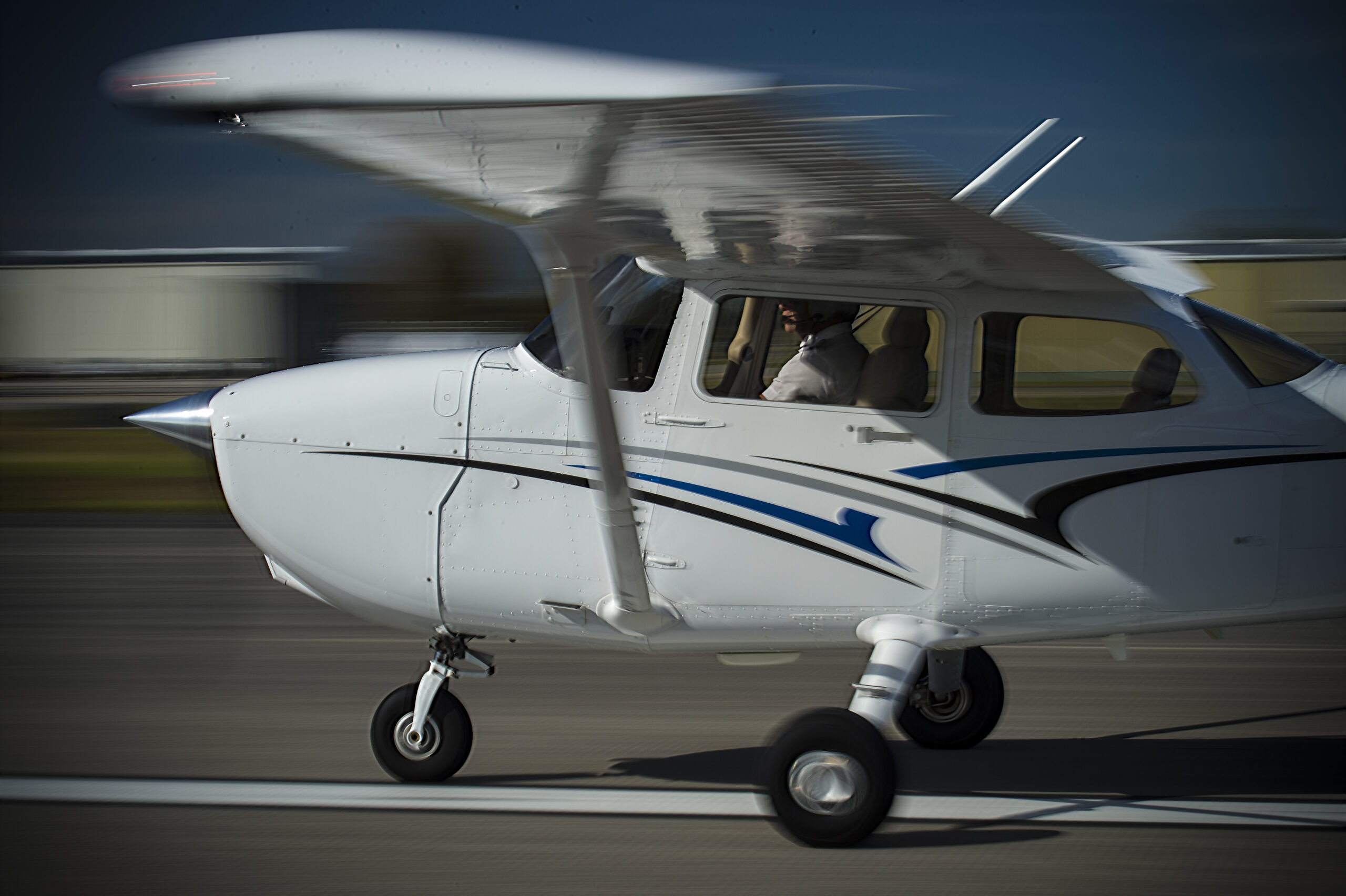The FAA Medical Exam: Common Questions
How Do I Find an Aviation Medical Examiner?
Aviation Medical Examiners (AMEs) are licensed medical doctors who have received additional certification from the Federal Aviation Administration (FAA) to conduct aviation medical examinations for pilots. Per FAA’s website, individuals must search for an Aviation Medical Examiner in their area. PEA has been successfully training pilots from all over the world for over 50 years. Embarking on a journey at a new school can sometimes be an overwhelming experience. PEA is a community, eager to help set their students up for success. Therefore, pilots who are looking to take flight with PEA, will have the help of their Student Service department to locate an AME. However, for international students planning to fly with PEA and concerned about obtaining their medical once arriving in the United States, can find a local AME in their home country before arriving.
Which Type of Aviation Medical Certificate Should I Get?
The Federal Aviation Administration (FAA) issues three types of medical certificates: First Class, Second Class, and Third Class. Student, sport, or private pilots must hold at least a third class medical. Commercial pilots are mandated to obtain a second class certificate, while it is imperative that airline pilots maintain the highest level of medical: a first class certificate. Let’s take a closer look and break down the three types of aviation medical certificates.
- First Class: The First Class medical is the highest level of medical certification, applicable to pilots who hold an Airport Transport License (ATP) or those whose employers require first medical standards. For individuals under 40 years old, they must renew their First Class medical every 12 months. However, those 40 years of age or older, require a renewal every 6 months. This is to ensure the medical fitness requirements are being consistently met. Phoenix East Aviation ensures to schedule AME appointments for first-class medicals for their students.
- Second Class: A Second Class medical is required for pilots who fly most commercial operations, such as crop dusting, cargo transportation, passenger charter flights, or any other commercial roles. For commercial pilots, it is imperative to hold a valid Second Class medical in order to retain operational privileges. A Second Class medical has a mandatory 12-month renewal period, regardless of the pilot’s age.
- Third Class: A Third Class medical is the least restrictive level of medical certification, and is the prerequisite to begin flight training. In order to begin flight training and/or logging any flight hours, this medical certificate must be obtained. A third class medical certificate, for pilots under 40 years old is valid for 24 months. Pilots who are younger than 40 can hold this type of medical certificate for up to 60 months. Whether an individual aims to become an airline pilot or prefers flying as a hobby, it is imperative that they hold a third-class medical certificate.
Fun fact: As a student pilot progressing through flight training, understanding the various medical classes and certificates is crucial knowledge, as it will be their written test and checkride.
How Much Does it Cost to Obtain an Aviation Medical Certificate?
The Federal Aviation Administration (FAA) does not regulate the fees that Aviation Medical Examiners (AME) can charge pilots for administering the medical exams. However, AMEs, who are typically licensed medical doctors, are encouraged to maintain their fees for pilots within a reasonable range that aligns with the fees charged to regular, non-pilot, patients who are obtaining comparable medical services. The cost for obtaining a third class medical certificate typically ranges within $100-$160, with variations depending on the geographic region or area of the country where the medical examination is being done.
What are the Health Standards Needed to Pass?
When it comes to obtaining an aviation medical certificate, pilots must meet specific health standards that are set by the Federal Aviation Administration (FAA). Let’s take a closer look at what health standards are examined during the exam:
- Vision Requirements
- Hearing Standards
- Overall Health Evaluation
The standards are outlined in detail in the “Guide for Aviation Medical Examiners Synopsis of Medical Standards: Summary of Medical Standards”.
| Medical Certificate Pilot Type | First-Class Airline Transport Pilot | Second-Class Commercial Pilot | Third-Class Private Pilot | ||||||||||||||||||||
|---|---|---|---|---|---|---|---|---|---|---|---|---|---|---|---|---|---|---|---|---|---|---|---|
| Distant Vision | 20/20 or better in each eye separately, with or without correction. | 20/40 or better in each eye separately, with or without correction. | |||||||||||||||||||||
| Near Vision | 20/40 or better in each eye separately (Snellen equivalent), with or without correction, as measured at 16 inches. | ||||||||||||||||||||||
| Intermediate Vision | 20/40 or better in each eye separately (Snellen equivalent), with or without correction at age 50 and over, as measured at 32 inches. | No requirement. | |||||||||||||||||||||
| Color Vision | Ability to perceive those colors necessary for safe performance of airman duties. | ||||||||||||||||||||||
| Hearing | Demonstrate hearing of an average conversational voice in a quiet room, using both ears at 6 feet, with the back turned to the examiner or pass one of the audiometric tests below. | ||||||||||||||||||||||
| Audiology | Audiometric speech discrimination test: Score at least 70% reception in one ear at an intensity of no greater than 65 dB. Pure tone audiometric test. Unaided, with thresholds no worse than:
|
||||||||||||||||||||||
| Ent | No ear disease or condition manifested by, or that may reasonably be expected to maintained by, vertigo or a disturbance of speech or equilibrium. | ||||||||||||||||||||||
| Pulse | Not disqualifying per se. Used to determine cardiac system status and responsiveness. | ||||||||||||||||||||||
| Blood Pressure | No specified values stated in the standards. The current guideline maximum value is 155/95. | ||||||||||||||||||||||
| Electrocardiogram (ECG) | At age 35 and annually after age 40 (first-class only) | Not routinely required. (second- and third-class only) | |||||||||||||||||||||
| Mental | No diagnosis of psychosis, or bipolar disorder, or severe personality disorders. | ||||||||||||||||||||||
| Substance Dependence and Substance Abuse | A diagnosis or medical history of substance dependence is disqualifying unless there is established clinical evidence, satisfactory to the Federal Air Surgeon, of recovery, including sustained total abstinence from the substance(s) for not less than the preceding 2 years. A history of substance abuse within the preceding 2 years is disqualifying. Substance includes alcohol and other drugs (i.e., PCP, sedatives and hypnotics, anxiolytics, marijuana, cocaine, opioids, amphetamines, hallucinogens, and other psychoactive drugs or chemicals). | ||||||||||||||||||||||
| Disqualifying Conditions | Unless otherwise directed by the FAA, the Examiner must deny or defer if the applicant has a history of: (1) Diabetes mellitus requiring hypoglycemic medication; (2) Angina pectoris; (3) Coronary heart disease that has been treated or, if untreated, that has been symptomatic or clinically significant; (4) Myocardial infarction; (5) Cardiac valve replacement; (6) Permanent cardiac pacemaker; (7) Heart replacement; (8) Psychosis; (9) Bipolar disorder; (10) Personality disorder that is severe enough to have repeatedly manifested itself by overt acts; (11) Substance dependence; (12) Substance abuse; (13) Epilepsy; (14) Disturbance of consciousness and without satisfactory explanation of cause, and (15) Transient loss of control of nervous system function(s) without satisfactory explanation of cause. | ||||||||||||||||||||||
Please note: depending on specific circumstances a pilot has, or any pre-existing medical conditions, additional evaluations or tests may be required. The primary goal of these medical standards is to ensure the safety of pilots, passengers, and the general public. By meeting the requirements, the dream of becoming a pilot is one step closer to taking off!
What Happens if I Fail?
The majority of pilots successfully pass the aviation medical examinations without significant issues. However, pilots with certain pre-existing medical conditions may require a special medical certificate. In those cases, the AME must submit the applicant’s application to the Federal Aviation Administration (FAA) for review. Both the medical examiners and the FAA share the goal of facilitating safe flight operations. Therefore, if an individual’s medical condition does not affect the flight safety, they are likely to be issued an aviation medical certificate upon review.
In rare instances, a pilot may not meet the qualifications for medical certification due to a disqualifying condition. If an individual has a medical condition that could potentially interfere with the safe operation of an aircraft, it is advisable to consult with an aviation medical examiner and/or aviation lawyer to explore their available options. In certain cases, obtaining a waiver may be possible, but seeking guidance from knowledgeable professionals familiar with FAA regulations and aviation medical examinations is highly recommended.
PEA has proudly selected MzeroA as their exclusive ground school provider for its Part 141 flight training courses. Jason Schappert, founder of MzeroA, has many instructional and educational videos for future and current pilots. “A Good pilot is always learning” and with the educational videos MzeroA provides, the FREE content is only a glimpse at how informative and comprehensive the complete programs are. Learn more about the FAA Medical exams with the MzeroA video below.
Schappert, J. (2022, September 8). Can I pass the FAA medical exam. YouTube. https://www.youtube.com/watch?v=stqOSPRdh9M
It is important to Phoenix East Aviation that everyone who walks through their doors to begin flight training, has a seamless admission process. PEA’s esteemed Admissions Officers and Student Services are here to help! Are you interested in learning more about how to make your pilot dreams take off? Contact us at info2@pea.com to get in touch with us or with any questions.




